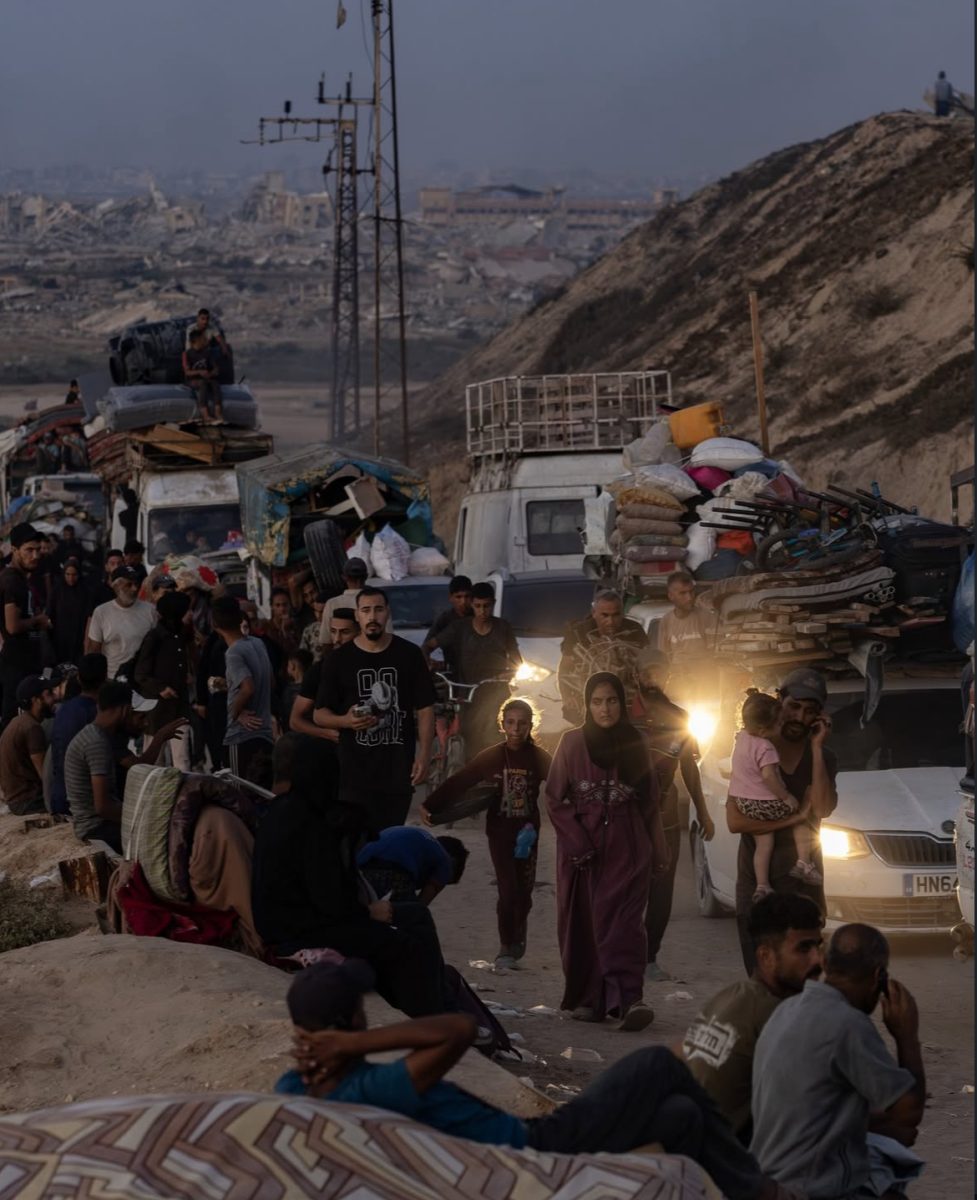On Aug. 22, 2025, the United Nations (U.N.) published a report that declared famine is occurring in parts of the Gaza Strip. The report stated that if no action is taken, the entirety of Gaza would be in famine by the end of September. According to the report, this is a direct result of the constant bombing of Gaza and the forced displacement of the people there. “As this Famine is entirely man-made, it can be halted and reversed. The time for debate and hesitation has passed, starvation is present and is rapidly spreading,” the report’s Famine Review Committee concluded.
To take a quote from Fordham’s mission statement, “Fordham is committed to research and education that assist in the alleviation of poverty, the promotion of justice, the protection of human rights, and respect for the environment.”
Despite this claim in our mission statement, the university has remained disgustingly neutral about its stance on the famine; the same can’t be said about unofficial student groups such as the Fordham chapter of Students Justice for Palestine (SJP) or the Jewish Voice for Peace (JVP). While the official representatives of the university have remained silent on this issue, these groups have made independent efforts to try to get people on board with their message. This shouldn’t be the only thing that the Fordham community is doing; students shouldn’t be on the front line without support from the institution and its administrators.
Dalia Ludquist, GSB ’28, who is a student activist, found her footing in supporting these movements through social media. She said, “It’s really through social media that you’ll find these like grassroots organizations, from reposts, some stories, and tags, and this is how you go out and do your community work.” In that same breath, she also added, “[A dean from Fordham Law School] spoke on international law and how Israel is violating this [inter]national law.” With someone on a higher level, such as a dean being able to speak up, it shows that the university isn’t entirely complicit in this matter but rather feels as if they’re being silenced. Look at Columbia University as an example.
Freedom of speech at Fordham is nonexistent, with the New York Police Department being called to shut down a protest in the Leon Lowenstein Center lobby in May of 2024, and the entire history of Fordham SJP with the institution. Furthermore, earlier this year, there was a petition to prevent Shai Davidai from speaking at Lowenstein, who was suspended from Columbia University for harassing students, which was ignored by Fordham’s administration.
Jake Schefer, GSS ’25, and leader of the JVP, said, in a written statement, “Fordham has no problem letting Shai Davidai speak on campus, who was suspended by Columbia University for harassing Columbia staff … including their [Chief Operating Officer] , and is known for harassing students as well who dare speak out for Palestine. We didn’t even attempt to formalize the JVP Fordham chapter as a Fordham University student group because of how they treated the SJP Fordham chapter before us.” Fordham’s lack of freedom of speech hinders its students and organizations from speaking out about these issues, leading to a default stance of silence from the Fordham community.
It speaks volumes to me that both groups at the university that advocate for Palestinians’ rights have been shot down. Fordham is trying to maintain a “neutral” stance when we need inclusivity and everyone’s voices to be heard during these moments. It’s off-putting that we’re choosing to be silent when additional lives are being lost every day. All of this is hypocritical of Fordham’s Jesuit identity and our focus on “the alleviation of poverty, the promotion of justice, the protection of human rights and respect for the environment” if we even still have that.
On the other hand, a Palestinian-American Student, Jamili Helo, FCRH ’28, spent a week with immigrant children from Gaza through the non-profit organization HEAL Palestine, where she tried to help them forget their problems for a second and let them be normal kids again. In an interview, she said, “seeing that there are people who are donating so much money and doing this, just out of the kindness of their hearts … taking time out of their schedules just to help other people is a really amazing thing to see.”
During this week, she said she saw hope for these kids who survived such trauma. Whereas the people currently in Palestine face a more dire future. With the severe lack of food, water, fuel, healthcare and sanitation and little clearance for aid workers to support Palestinians, international aid groups like the U.N. fall short.
With few other options, people turn to the Global Sumud Flotilla. The Flotilla is an international organization that is coordinating the largest coordinated civilian flotilla in history. Over the summer, they sent multiple smaller shipbreak the Israeli maritime blockade and reach Palestinians faster. This is a more dangerous route, emphasized by the Israeli drone attack on the lead boat of the Flotilla while it was docked in Tunisia. Despite the danger, people are still determined to do this. They believe the risk they take is a small price to pay compared to the millions of Palestinians at increasingly greater risk of starvation with every day that passes.
So, if anyone reading this article wants to help, you can donate to the Flotilla or HEAL Palestine. Or alternatively, go to a protest nearby and spread some awareness; it appears that Fordham won’t do its part in this regard.
Gabriel Capellan, FCRH ‘28, is a journalism major from the Bronx, New York.














































































































































































































